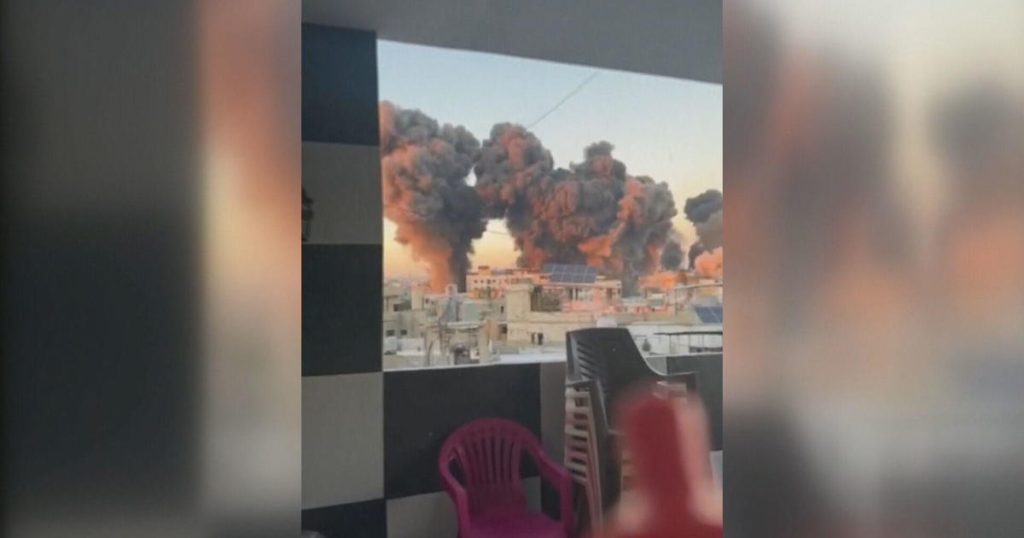In a recent strike, Israel targeted the leader of the Hezbollah terror group in Beirut, Lebanon. The strike resulted in huge explosions that rocked the capital city, causing significant damage to the targeted headquarters in a residential neighborhood. The Iran-backed Hezbollah group has been a longstanding enemy of Israel, and the strike was part of Israel’s ongoing efforts to combat the threat posed by the group. Imtiaz Tyab reported on the aftermath of the strike, highlighting the intense nature of the explosions and the damage caused.
The airstrikes in Beirut come amid escalating tensions between Israel and Hezbollah, with both sides engaging in periodic exchanges of fire and attacks. The Hezbollah group is known for its aggressive actions against Israel, including rocket attacks and other acts of terrorism. Israel views Hezbollah as a significant threat to its security and has taken action to target the group’s leadership and infrastructure. The recent strike on Hezbollah headquarters in Beirut is part of Israel’s strategy to weaken the group and prevent it from carrying out attacks against Israeli targets.
Israel has not hesitated to use military force to defend itself against threats from groups like Hezbollah, especially in the face of ongoing attacks and provocations. The strike on Hezbollah headquarters in Beirut demonstrates Israel’s determination to target key individuals and facilities associated with terrorist organizations that pose a threat to its security. By targeting the leader of Hezbollah, Israel aims to disrupt the group’s operations and prevent it from carrying out further attacks on Israeli soil.
The strike on Hezbollah headquarters in Beirut has raised concerns about the potential for further escalation of violence in the region, as tensions between Israel and Hezbollah continue to rise. Both sides have engaged in aggressive actions in recent years, leading to fears of a broader conflict that could destabilize the region. The international community has called for calm and restraint, urging both Israel and Hezbollah to avoid further provocations and de-escalate the situation to prevent further violence and civilian casualties.
The targeting of the Hezbollah leader in Beirut highlights the complex and volatile nature of the conflict between Israel and Hezbollah, as both sides are engaged in a continual cycle of violence and retaliation. The use of airstrikes and other military actions to target key individuals and infrastructure associated with terrorist groups is a key component of Israel’s security strategy in dealing with threats from groups like Hezbollah. However, the strike on Hezbollah headquarters in Beirut also underscores the potential for further conflict and instability in the region, as both sides continue to engage in provocative actions that could lead to broader hostilities.
As the situation in the Middle East remains tense and volatile, the recent strike on Hezbollah headquarters in Beirut serves as a stark reminder of the ongoing conflict between Israel and Hezbollah, and the potential for further violence and instability in the region. The international community continues to monitor the situation closely, urging both sides to exercise restraint and avoid actions that could escalate the conflict further. The targeting of the Hezbollah leader in Beirut by Israel is just the latest chapter in a long history of conflict between the two sides, with no clear resolution in sight.


